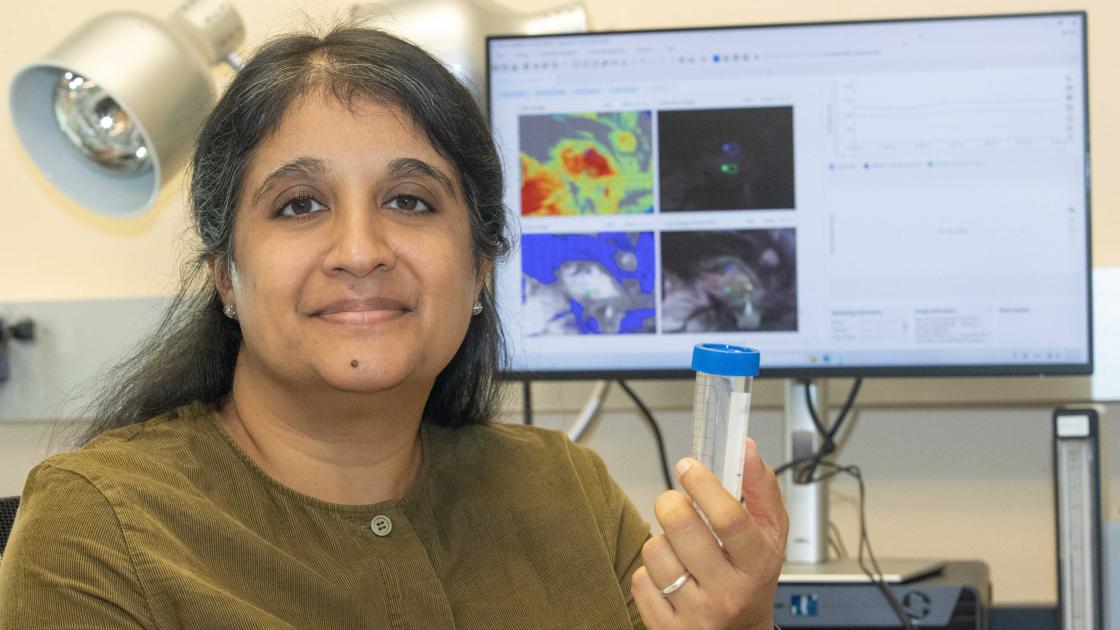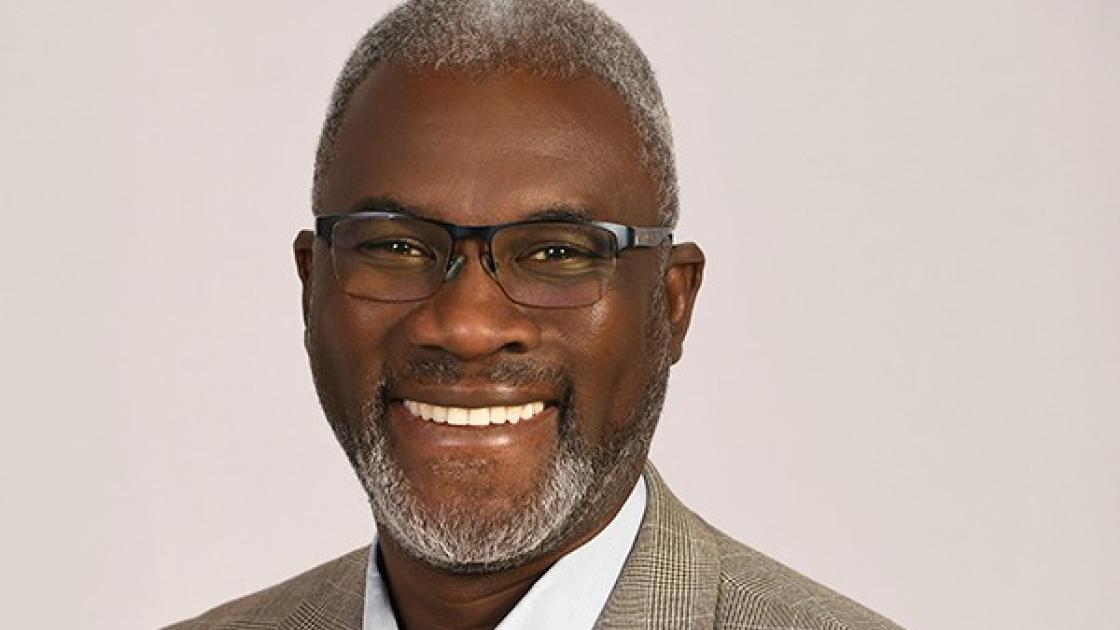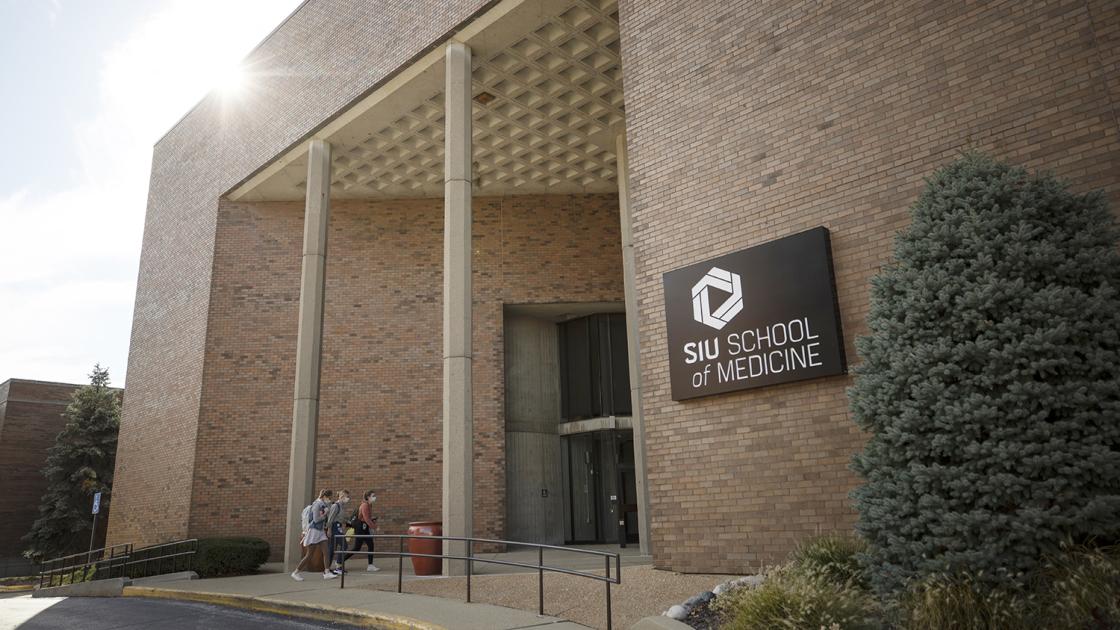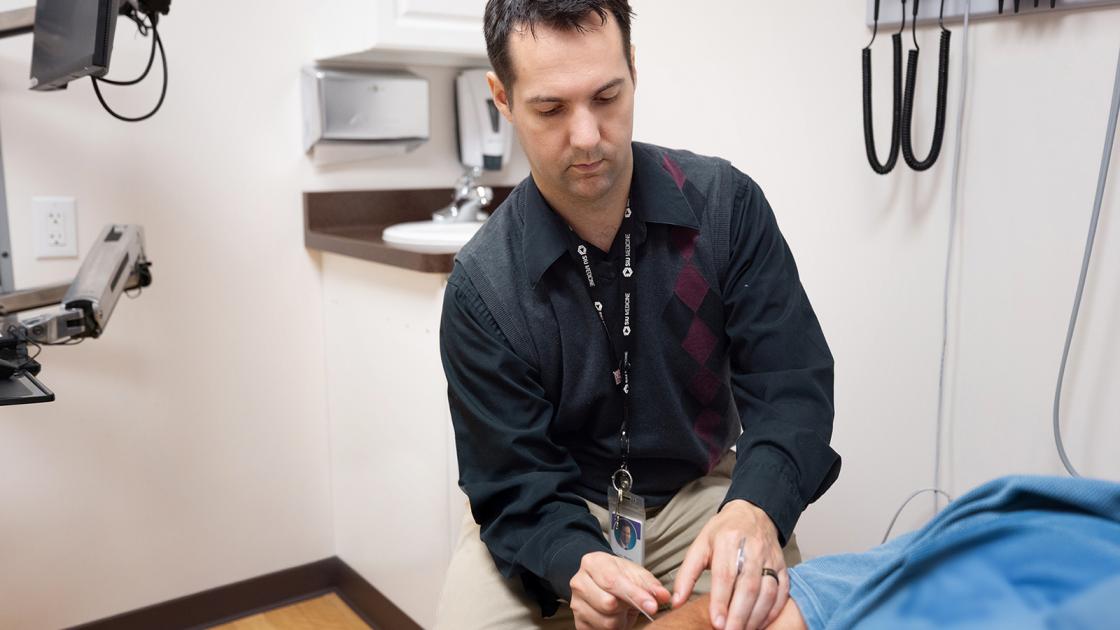
Restoring balance
Corry Meyers brings eastern medicine to SIU’s Center for Health Aging and Wellness
When Corry Meyers, DAOM, arrived at Southern Illinois University School of Medicine in March 2020, it was, in his words, “the day SIU shut down from COVID.” He laughs now at the irony. After a half-day of onboarding, he was sent home—as one of the last new hires before the pandemic lockdown. “I didn’t step foot in the clinic for three months,” he recalls. “It was weird, but it felt like I was supposed to be here.”
That sense of timing has followed Meyers throughout his life and career—a journey that’s taken him from a health crisis in New Mexico to the study of ancient Chinese medical traditions in Oregon and San Francisco, to busy community clinics in St. Louis, and finally to Springfield, where he now practices at SIU’s Center for Healthy Aging and Wellness.
A personal turning point
Meyers’ path to acupuncture began not from curiosity, but desperation. At 23, he was struggling with a health crisis, and Western treatments weren’t helping. Eventually, his doctor told him, “There is nothing left that I can do for you.”
“I’d done all the medications. I had all the side effects: suicidal ideation, extreme mood swings. I lost my job, dropped out of school, and was living on my credit card,” Meyers says.
Then someone suggested acupuncture. “I thought, are you serious? That’s quack medicine,” Meyers admits. “But I had nothing to lose, and insurance covered it.” What followed changed his life. “It started working. I was able to re-enroll in school, function again, and feel like myself for the first time in years.”
The experience didn’t just restore his health—it altered his career path. Initially planning to become a nurse anesthetist, he instead began training to help others the way acupuncture helped him.
Rigorous education in an ancient discipline
Despite lingering misconceptions, becoming an acupuncturist is an extensive process. Meyers earned master’s and doctoral degrees in East Asian medicine, with more than 4,500 classroom and clinical hours over seven years. His master’s degree came from the Oregon College of Oriental Medicine, followed by a doctorate from the American College of Traditional Chinese Medicine in San Francisco, where he focused on women’s health and pain management.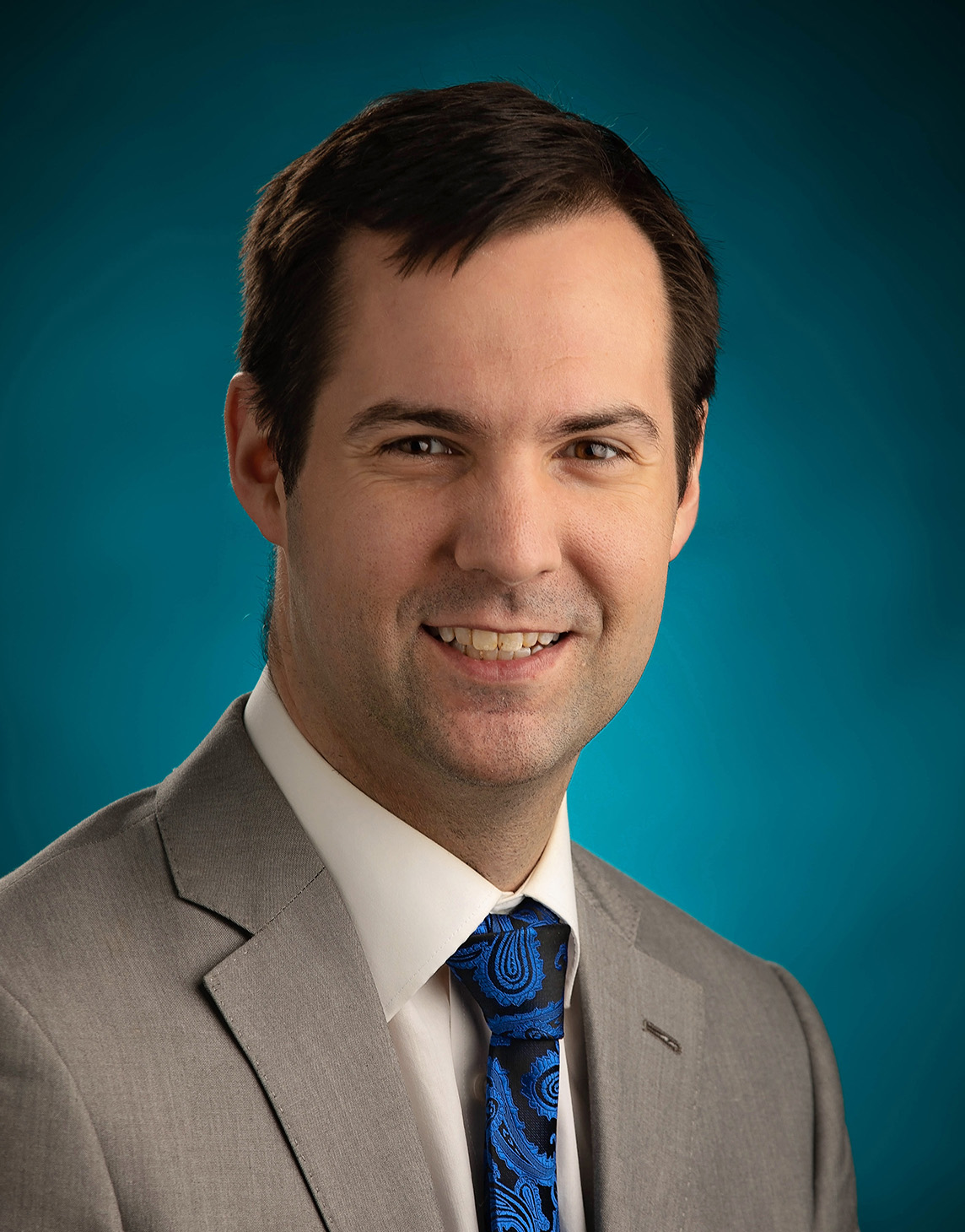 Students of East Asian medicine study both Western and Chinese medical sciences. “We learn anatomy, physiology and pathology like Western doctors do,” Meyers says. “But we also learn Chinese medical theory and spend hundreds of hours treating patients before graduation.”
Students of East Asian medicine study both Western and Chinese medical sciences. “We learn anatomy, physiology and pathology like Western doctors do,” Meyers says. “But we also learn Chinese medical theory and spend hundreds of hours treating patients before graduation.”
After passing four national board exams—covering acupuncture theory, point location, biomedicine and Chinese herbalism—Meyers became licensed in Illinois and board certified. He later earned the title of Diplomate of Classical Chinese Medicine after training with one of the world’s top herbalists.
Meyers notes that outside of Western medicine, acupuncture is the most heavily studied medical modality in the world. More than 13,000 studies across 60 countries in the past two decades support its efficacy for a wide range of conditions.
Before joining SIU, Meyers worked in St. Louis at Modern Acupuncture, a high-volume community clinic where he treated up to 600 patients per month. “It was a great experience,” he says. “We had multiple patients in one room—it’s about accessibility and affordability.”
When SIU offered him a position, he felt an almost intuitive pull to accept. “I was offered the job in December 2019 and told I could start any time before May,” he recalls. “Something told me I had to be there for the March 16th onboarding. I didn’t know why, but if I had waited my job might’ve been rescinded because of the hiring freeze. I just knew I needed to be here.”
A philosophy of restorative medicine
At SIU’s Center for Healthy Aging and Wellness, Meyers practices the full scope of East Asian medicine. “Chinese medicine isn’t disease-based,” he explains. “We don’t treat the disease. We treat the body, and the body treats the disease.”
East Asian medicine strives to restore the body’s natural balance and physiological function.
“Your body knows how to heal itself,” he says. “My role is to help it do what it already knows how to do.”
Patients come to Meyers for a variety of reasons: chronic pain, neurological issues or conditions that haven’t responded to conventional treatment. “I get a lot of what we call ‘zebras,’” he says. “People who’ve seen every specialist, tried everything and still don’t have answers.”
Most feel some improvement after their first session. “But because we’re working with the body’s natural systems, it takes repetition,” he explains. “The first month, I see patients two or three times a week. We retrain the body to heal itself and stimulate its production of endorphins and natural pain relievers. With consistent treatments, those effects last longer and healing accelerates.”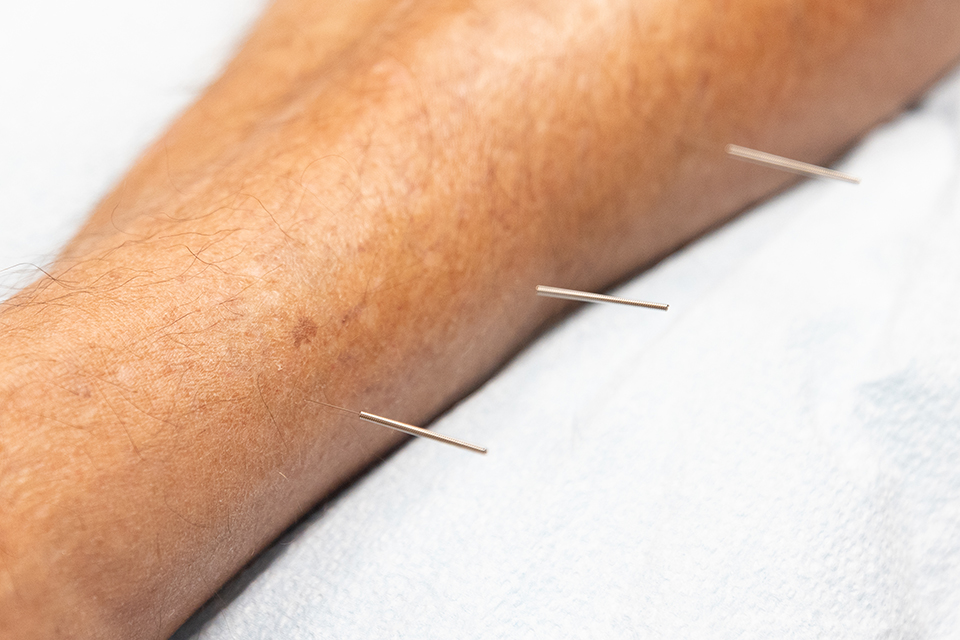 Acupuncture’s benefits go far beyond pain relief. Research shows it influences the nervous system, circulation and even immune function. Meyers also practices auricular acupuncture—stimulating specific points on the ear to treat the entire body. “Every part of the body has a corresponding point on the ear,” he explains. “It’s also the only external place where the vagus nerve comes to the surface, which controls the internal organs.”
Acupuncture’s benefits go far beyond pain relief. Research shows it influences the nervous system, circulation and even immune function. Meyers also practices auricular acupuncture—stimulating specific points on the ear to treat the entire body. “Every part of the body has a corresponding point on the ear,” he explains. “It’s also the only external place where the vagus nerve comes to the surface, which controls the internal organs.”
In his herbal pharmacy—his “Care Corner”—Meyers prescribes individualized formulas from more than 100 natural ingredients, mostly foods common in traditional Chinese diets. “We’re not talking about weird jungle roots,” he laughs. “We’re talking cinnamon twig, ginger, lily bulb, aged tangerine peel, seaweed—things that nourish the body. It’s how you combine them that makes them therapeutic.”
He selects herbal suppliers carefully to ensure patient safety. The ones he works with follow strict Good Manufacturing Practices (GMP) and perform thorough quality and safety testing.
Each patient receives a pre-mixed powdered formula to mix with hot water twice a day. “It’s simple and it’s tailored to their body’s pattern, not just their diagnosis.”
For decades, Springfield resident Pam Speer has included Eastern Medicine in her care regimen as a way to alleviate stress and improve her overall health. She described Meyers’ holistic approach as both compassionate and comprehensive. “He listens intently,” she says. “He is an absolute wealth of information about ancient Chinese treatments that one would not normally think of.”
Integrating East and West
Meyers’ latest project is a book titled An Introductory Clinical Manual of Restorative Therapies. Encouraged by SIU clinician James Daniels, MD, Meyers wanted to make Eastern therapies more accessible to Western-trained providers. 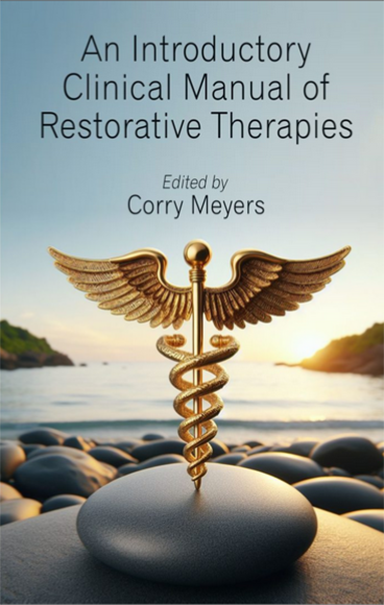 “I wanted to remove the jargon,” he says. “Doctors already have enough on their plates. Each chapter is a snapshot of a therapy—like ear acupuncture or gua sha—with background, evidence and a safe, simple protocol they can try right away.”
“I wanted to remove the jargon,” he says. “Doctors already have enough on their plates. Each chapter is a snapshot of a therapy—like ear acupuncture or gua sha—with background, evidence and a safe, simple protocol they can try right away.”
The book features contributions from several SIU colleagues, including a dietitian, physicians and a local massage therapist. “It’s interdisciplinary by design,” Meyers explains. “The goal is to reduce barriers between fields and give doctors practical tools they can use immediately.”
He believes the approach could even help combat physician burnout. “Doctors see sick patients all day, and often those patients leave still in pain. If you can send someone home feeling better right away, you feel better too. It reminds you why you went into medicine.”
A holistic approach for the heartland
For patients in central Illinois—many encountering acupuncture for the first time—Meyers sees his role as both healer and educator. “There’s still skepticism,” he acknowledges. “But once people experience it, they get it. They feel the difference.” He’s also expanded his clinic to the public, not just SIU patients. “Anyone can see me.”
He’s quick to emphasize that Eastern medicine complements, not replaces, Western care. “If you’re having a heart attack, don’t come to my clinic,” he says. “Western medicine is unbeatable for emergencies. But when it comes to restoring health and helping the body function better after the crisis, that’s where Chinese medicine shines.”
Meyers’ vision is one of collaboration, not competition. “They’re two sides of the same coin,” he says. “It’s not about either/or; it’s about whoever has the best medicine for the desired outcome at that moment.”
Speer would like to see still more expansion of the integrative programs, to add more functional medical talent into the community. “I know a lot of people who travel to St. Louis for this type of treatment. They would gladly stay in Springfield if it were offered here,” she says.
For someone once skeptical of acupuncture himself, Meyers is now one of its most articulate advocates—especially in regions where holistic medicine remains unfamiliar.
“It’s about helping people live better, not just fixing what’s broken,” he says. “When we restore the body’s functional physiology, everything else starts to heal.”

